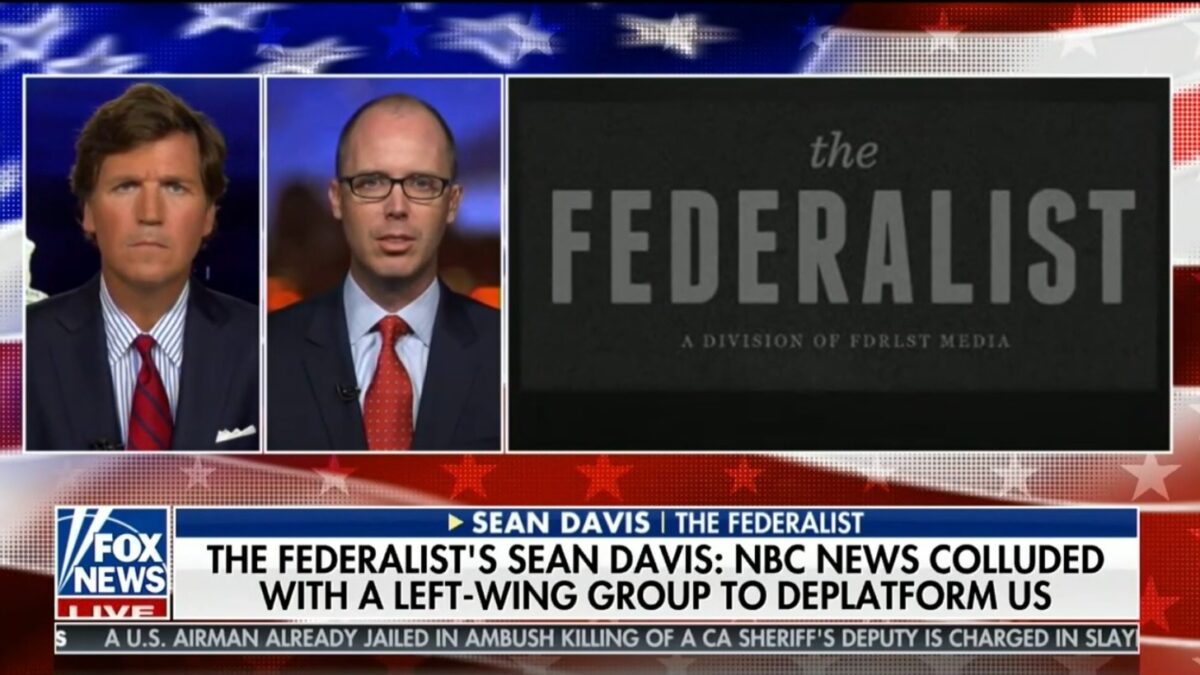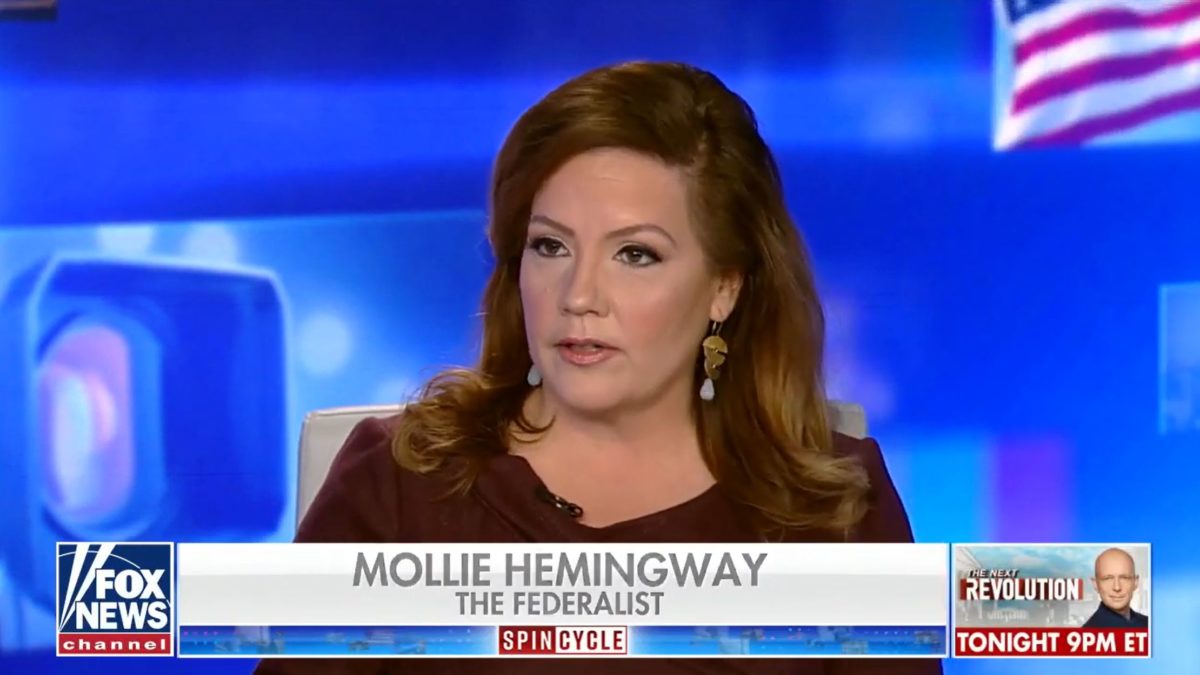
Nothing testifies to the death of federalism better than the rash of stories last week about federal requirements for public school lunches. Consider just a few:
- The representatives of the once-free people of Connecticut voted unanimously in both the state House and Senate to ban chocolate milk, lest its troublesomely high levels of sodium endanger a portion of their federal school lunch subsidies.
- In Washington, lawmakers debated how to respond to complaints that schools are having to divert money from teaching budgets “to cover the costs of mounds of wasted fruits and vegetables.” Experts suggest that enlisting “technical assistance” in organizing lunch lines and presenting food might help local schools cut their losses–especially since the US Department of Agriculture (USDA) gives extra subsidies to those who serve these not-so-enticing meals.
- The USDA closed out the week by offering a “whole grain-rich pasta products” waiver to those schools that have found quality pasta difficult to come by–as long as said hardship is properly certified by their respective state board of education.
We’ll pause a moment to let your nausea pass—hopefully not inspired by the thought of school children having to eat non-whole grain-rich pasta, at least while the two-year waiver period lasts.
The dynamic at work in this case illustrates the contemporary relationship between states and the federal government. It begins with the promise of federal funding—assuming certain conditions are met. Revenue-strapped states scramble for the money like children diving for candy after a piñata bursts. This “extra” money is soon not extra at all—but rather a vital (even if relatively small) part of a barely balanced budget. Meanwhile, the federal bureaucracy realizes that the original conditions attached to the money are inadequate to reach its ever-elusive goals. New rules follow with threats of withheld funds for non-compliance.
For most states (see CT above), the decision is easy: comply. But what happens when the new regulations are impossibly onerous? Finally, out come the champions of federalism, whose alternative simply shovels a little less dirt on its grave.
Hear the Republican lion in the un-eaten fruit and veggie war: “‘I want to do all I can to fight childhood obesity,’ Rep. Rodney Davis (R-Ill.), who has been sharply critical of the standards, said in an interview. ‘But I’ve heard from school districts, superintendents, and they are asking for flexibility. This top-down approach from Washington isn’t working. The plate waste is piling up.’”
What’s the alternative to a “top-down approach from Washington”? Waivers from Washington. The USDA seems to get what Republicans miss: the name of the game is power. Grant a “whole grain-rich pasta products” waiver and you’re still running the game by your rules. The USDA giveth, and the USDA taketh away.
Real federalism—and, more importantly, real self-government—looks quite a bit different. In Federalist 45, James Madison addresses concerns that the sum total of power granted to the national government in the Constitution will endanger the powers, in the language of the 10th Amendment, “reserved to the States.” He begins to build his case to the contrary by reminding his audience, as we do well to be reminded of today, that federalism is a means, not an end:
Was, then, the American Revolution effected, was the American Confederacy formed, was the precious blood of thousands spilt, and the hard-earned substance of millions lavished, not that the people of America should enjoy peace, liberty, and safety, but that the government of the individual States, that particular municipal establishments, might enjoy a certain extent of power, and be arrayed with certain dignities and attributes of sovereignty?
Madison asserts that the balance between state and federal authority should be struck at the point where it most contributes to the “peace, liberty, and safety” of the American people, not the dignity of state or federal officeholders. In his day, that meant escaping the anarchic tendencies of the Articles of Confederation with a more robust national government, one capable of securing the common defense, among other essential purposes. Today, we might simply posit the reverse—that we need to strengthen the states at the expense of the federal government.
Madison did not expect such a day to come any time soon, given five ways the “State governments will have the advantage of the Federal government” in maintaining its share of power:
…whether we compare them in respect to the immediate dependence of the one on the other; to the weight of personal influence which each side will possess; to the powers respectively vested in them; to the predilection and probable support of the people; to the disposition and faculty of resisting and frustrating the measures of each other.
On the first point, Madison submits that given that state legislatures possessed the power of “direct intervention” in electing Presidents, an “absolute and exclusive” power in electing Senators, and great “influence” in electing Representatives, “each of the principal branches of the federal government will owe its existence more or less to the favor of the State governments.” But given the democratization of the national election process brought on by19th and 20th century Progressive sentiments and reforms, state legislatures no longer (1) appoint members of the electoral college; (2) directly elect Senators, or (3) possess much of an influence over the election of the Congressmen. Thus the Federal government is no longer dependent on the State governments for its election.
The greater “weight of influence” Madison thought state governments would possess relative to the Federal government, given the higher ratio of local and state employees to federal employees, also has not diminished the power of the federal government. Consider this graph that charts the total number and ratio of federal to state to local employees since 1955. Approximately one out of every fourteen Americans is a government employee today, compared to one in twenty-two Americans in 1955. The greatest part of the total increase of government employees amounts to the enlargement of state and local government employment. It matters little if the lunch lady pouring chocolate milk down the sink and serving fruits and vegetables is a local government employee if her job ultimately depends on monies slopped out by federal bureaucrats wielding carrot sticks.
Which brings us to the third part of Madison’s argument as to why the proposed federal republic was a great improvement over the earlier confederation; namely, its powers would be “few,” “defined,” and “exercised principally on external objects, as war, peace, negotiation, and foreign commerce.” Madison likely never could have imagined the Federal government adding management of sodium intake to this list as the American people sat listless on the political sidelines.
As troubling as the death of federalism is, we need more fundamental reform, as the Republican response to the school lunch mandates makes clear. There is, after all, an even more important third leg to the governing stool, implicit in Madison’s argument, but made explicit in the 10th Amendment: the people. Often conservatives read that Amendment as if it is meant to protect the rights of the states. But it is much better understood, both textually and historically, as an attempt to protect the people’s distribution of powers among themselves, the states and the national government. If we really want to restore 10th Amendment government, we’ll need to work much harder at removing power from both state and federal hands than at replacing the divine right of the Washington King with the divine right of state Barons.
We’ll know we’ve made progress when line-arranging technical assistants in Lunch Lady Land are hard to come by; when at least one Connecticut legislator is willing to take a stand for chocolate milk; when federal legislators and bureaucrats are embarrassed to discuss the whole grain content of a third grader’s pasta; and when, once again, government at all levels aims to protect the “peace, liberty, and safety of the American people,” rather than its own prerogative and “dignities.”
David Corbin is a Professor of Politics and Matthew Parks an Assistant Professor of Politics at The King’s College, New York City. They are co-authors of “Keeping Our Republic: Principles for a Political Reformation” (2011). You can follow their work on Twitter or Facebook.









